IMAGINARY Conference 2016
evento
Créditos
Sitio web
The IMAGINARY conference on open and collaborative communication of mathematical research will be held from July 20 to 23, 2016 in Berlin. We invite you to join this interactive conference which offers talks, workshops and a great cultural program!
In case video playback is not supported in your browser please click here.
Shaping future mathematics communication
At this stage of the IMAGINARY project (with 130 exhibitions in 30 countries and a big network and community), it is essential to gather all partners involved so far, together with new experts in the field of mathematical research, didactics, computer science, architecture, design, law, and media research to establish a comprehensive analysis of mathematics communication today and to develop new perspectives.
This conference allows to widen the field and offer insights openly to all peers in mathematics communication. This involves questions such as: How can mathematics be communicated? How can mathematical research or knowledge be transferred to a general public? How can the public be involved in mathematics communication? What tools, concepts, and strategies can be applied?
The conference’s focus is envisaged to be output-oriented and implemented in a dynamic and hands on fashion. All results of the conference will be made openly available to the community.
Conference style
We wish to break out of the “classical” way of doing a conference. We want to orient ourselves on a “hackathon” like structure, pioneered by young and dynamic companies in the computer science sector. These kinds of events usually lead to a fast development of new ideas and development of prototypes. We propose a mixture of conventional talks and hands on workshops. The workshops are designed to run in parallel. They will address a specific task which is achievable in the timeframe available.
Conference Web Page
The IMAGINARY conference will be held at the TAK Theatre in Berlin, partly parallel to the 7ECM conference and just before the ICME13 conference in Hamburg.
Please find all details of the conference including the a call for talks and workshops, info on our travel support programme for selected participants, child care options, cultural program, etc. on our IC16 website:
The conference is funded by Volkswagen Fundation.
Important dates
- Feb 1, 2016 – Deadline for call for talks and workshops
- Feb 15, 2016 – Deadline for travel support application
- March 1, 2016 – Announcement of final program and opening of registration
- July 1, 2016 – Registration closes
Topics
We have identified five topics of general importance for mathematics communication and its open source distribution. Below, each of them is introduced and briefly outlined. More topics can be added.
A Community, networking and legal aspects
This subject area will give an introduction to available community resources in terms of physical mathematics museums and online exhibits, as well as existing and future mathematics communication networks. It will also focus on legal aspects for the distribution of mathematical outreach projects and include financial and political topics, for example ways to generate funding and links to funding agencies and funding partners.
- mathematics communication / research 2.0: giving mathematics communication a more research oriented focus to ensure e. g. good quality control.
- mathematics communication networks
- mathematics museums and mathematics exhibitions
- legal notes for mathematics communication (copyright, code of conduct, open source)
- funding & politics (financial sustainability, political measures for math communication)
- integrating mathematics communication into larger institutional structures
B Advances in 2-d and 3-d visualization of modern mathematics, creation of mathematics exhibits
Here we will focus on modern visualization and production techniques, which especially apply to mathematical topics and mathematical exhibits. This topic will include new techniques to visualize mathematics, new user interfaces and technology. Special focus areas might be:
- visualization tools
- software development for math communication
- 3-d printing and other physical construction tools
- video game technologies
- new mathematical exhibits
C Knowledge transfer and pedagogics of mathematics communication
In Section C, we will focus on didactical approaches needed in mathematics communication for children and adults. This also includes new forms of transfer of knowledge and also inter/cross-disciplinary methods.
- didactics and pedagogy
- cross-disciplinary approach
- open education
- new forms of communication: social media, MOOCs, competitions, films, etc.
D Agile design and tools for maths communication
Design and communication tools play a major role in communication. How can we design content for mathematics communication? How can we, as communicators, involve the public and broaden the interdisciplinary approach by involving many people from different subject areas?
- agile design for mathematics communication
- mathematics and art
- new interfaces, new interaction possibilities
- communication tools for open source and community management
E Mathematical writing, journalism and media
This section will focus on communication with the media and presenting written material in an interesting and understandable fashion. It will also aim to give an overall introduction to the available mathematical media outlets for a general audience.
- mathematics journalism (magazines, articles, etc.)
- mathematics communication journals
- mathematical writing on current research
- supporting mathematicians in writing about their research
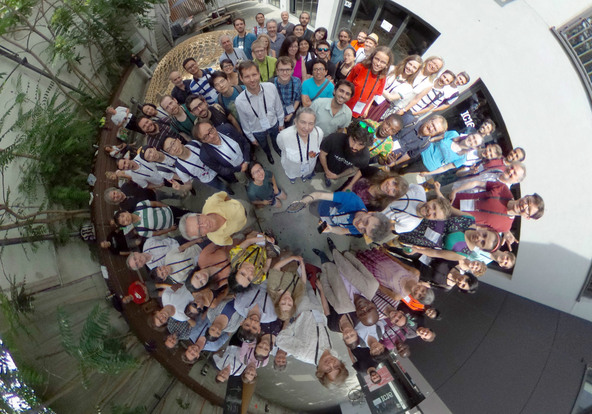
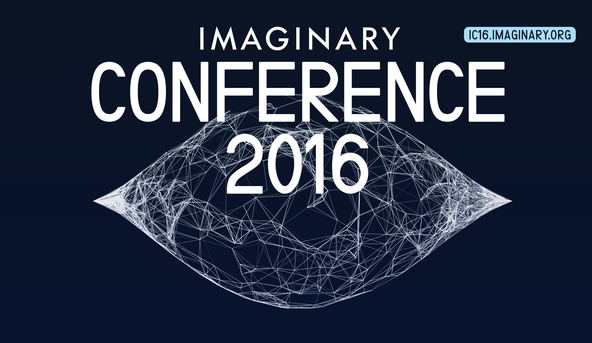
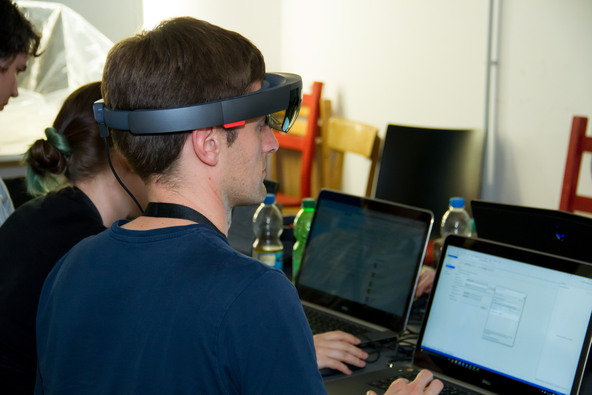


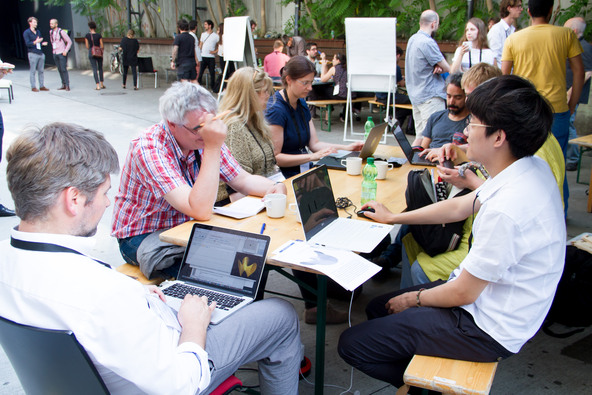
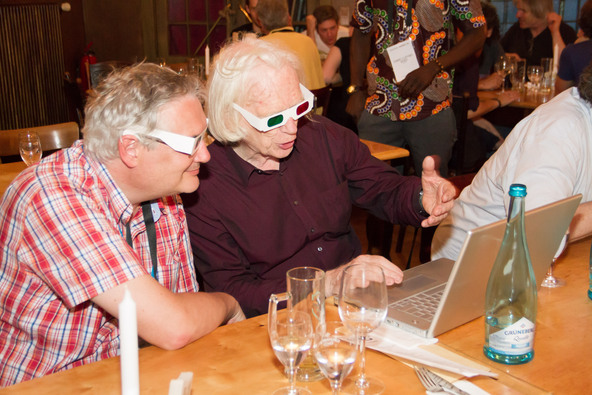
Archivos
Todos los eventos
- 1 de 35
- siguiente ›
